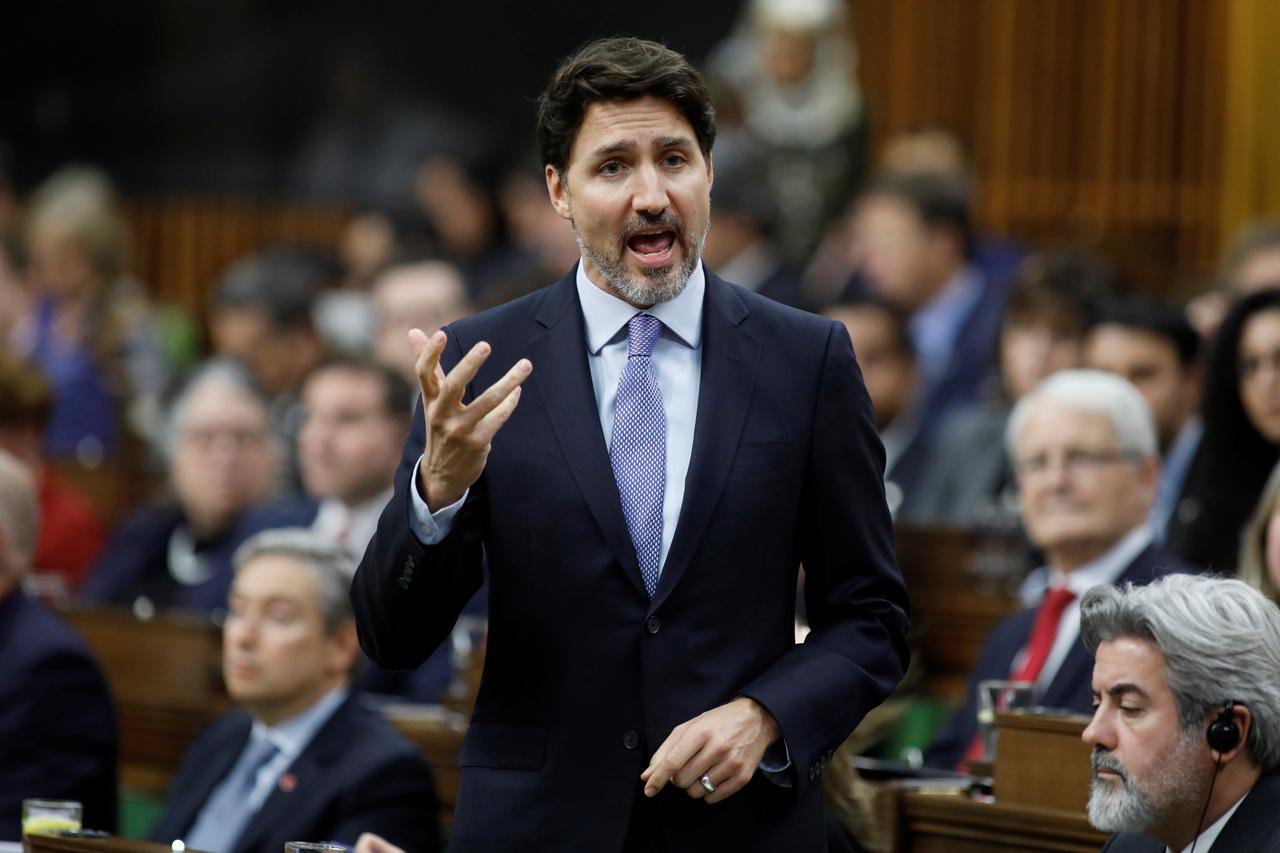Canada’s UN Security Council defeat a victory for international law
https://arab.news/6ruwx

Functioning at the UN as Israel’s defense lawyer for its serial violations of international law has once again cost Canada a coveted UN Security Council (UNSC) seat. And rightly so, as the UN Charter unambiguously declares its objective as being “respect for international law.”
It was widely accepted that former Prime Minister Stephen Harper’s staunch support for Israel contributed to his defeat as he sought a UNSC seat a decade ago. And, only last month, UN appointee and recognized Canadian expert on international law Prof. Michael Lynk understatedly warned: “If Canada’s campaign for a council seat is once again unsuccessful, its taciturn approach to the Israeli-Palestinian conflict will surely have been a contributing factor.”
In 2018, dozens of Canadian nongovernmental organizations encouraged Prime Minister Justin Trudeau and then-Foreign Minister Chrystia Freeland into bidding for the temporary UNSC seat. However, they cautioned on Palestine that it was “now more imperative than ever that Canada’s voting record at the United Nations is one that reflects the principles of international law.” Nonetheless, shortly thereafter, Freeland announced that a UNSC seat would allow Canada to serve as an “asset for Israel.”
As Canada maintained months of silence in the face of worldwide condemnation over Israel’s threat of annexing Palestinian territory, last month more than 100 Canadian and international NGOs wrote to all UN ambassadors to ensure that Canada’s recalcitrance in the face of international law governing Palestinian rights didn’t go unnoticed. Corey Balsam, of Independent Jewish Voices Canada, observed: “Trudeau speaks a lot about the importance of maintaining a rules-based international order… but of course annexation is at complete odds with international law and those rules.”
But it was not always thus. Twenty years ago, when rose petals filled the fountain in front of the House of Commons at the passing of Pierre Trudeau, Prime Minister Jean Chretien reflected: “On the international stage, he gave us a profile and stature well beyond our size and power. Wherever we were in the world, he made us feel proud to be Canadians.” Days later, I was called to a meeting with the prime minister, in which he sought insights and support for continuing to steer Canada’s course on the Palestinian-Israeli conflict in the face of intense pressure from the Israeli lobby over Ottawa’s voting record the last time it sat on the UNSC.
Now, the bloom is off the rose. Canadian former UN ambassador for disarmament Peggy Mason recently stated that Palestinian rights “matter in the voting. It played a role in our unsuccessful 2010 campaign. It would have been unthinkable when I was ambassador — Canada voting with the US, Israel and sometimes the Marshall Islands — on UN resolutions where the entire rest of the UN is voting in favor.” She noted the hypocrisy of “isolating ourselves in that way when we’re a self-declared champion of international law, yet our voting record doesn’t reflect that.” Canada’s loss is the UN’s victory.
Canada’s failed campaign culminated with a desperate, if disingenuous, response to the NGO letter by the country’s ambassador to the UN: “This year, (Canada) voted yes on one more resolution” supporting Palestinian rights. This obscured the fact that it was one more than the previous zero under the current prime minister, while voting against 67.
Karen Rodman, of the law NGO Just Peace Advocates, observed: “Within Canada and internationally, civil society has spoken. Being an ‘asset for Israel’ while eroding international law is not acceptable.”
Canada’s approach at the UN is out of step with the desire of most Canadians to be an international force for peace and human rights.
Fr. Robert Assaly
Canada’s approach at the UN is out of step with the desire of most Canadians to be an international force for peace and human rights. An EKOS poll last week found that 74 percent of Canadians oppose Israeli annexation, while 42 percent even want to impose sanctions on Tel Aviv if the annexation plan proceeds.
The defeat ought to be a clarion call for the Ottawa government to join the Canadian and international consensus on Israel and international law.
- Fr. Robert Assaly is a deacon of the Montreal diocese and an ordained Catholic priest.









































